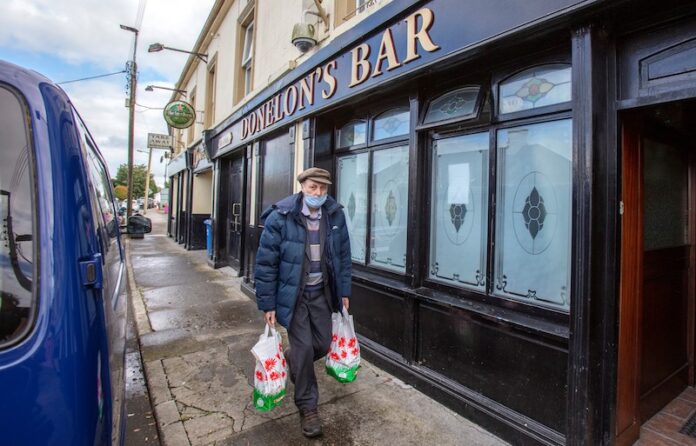After imposing one of Europe’s toughest lockdown regimes, the government had hoped to lift most curbs this week. — AFP pic
DUBLIN, Oct 19 — Ireland will allow nightclubs to reopen for the first time since March 2020 but stepped back today from plans to drop almost all Covid-19 restrictions in response to a rise in infections in one of the world’s most vaccinated countries.
After imposing one of Europe’s toughest lockdown regimes, the government had hoped to lift most curbs this week including the need for physical distancing and requirement for vaccine certificates in bars and restaurants.
Those measures will instead be extended until February, as will a requirement that bars and restaurants operate table service only. Those attending nightclubs must wear facemasks except when eating, drinking and dancing.
The limiting of music venues to fully seated shows drew an angry response. Promoters have organised and sold out numerous concerts over the coming weeks on the basis of advice last month that restrictions on venues would be lifted from this week.
“What a shambles of a government. Three days before shows. Feel sick, can only imagine the devastation out there today in our sector,” Shane Dunne, a promoter and managing director of the Indiependence festival, said on Twitter.
Ireland has one of the highest vaccination rates in the world with 92 per cent of adults fully protected but also one of the highest infection rates in Europe with over 400 cases per 100,000 people in the past 14 days.
With hospitalisations ticking up, though still far below peaks this year and last, the government also approved the extension of its vaccine booster campaign to all people aged 60 and over.
While Ireland’s domestic economy has recovered rapidly this year, the government is still subsidising the wages of one-in-eight workers in firms hardest hit by lockdown, on top of the 10 per cent of people who are temporarily or permanently unemployed. — Reuters


